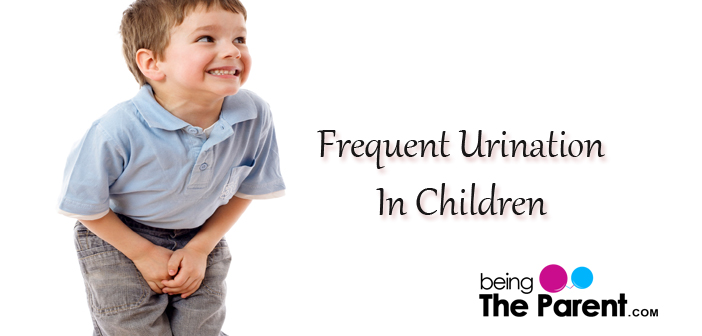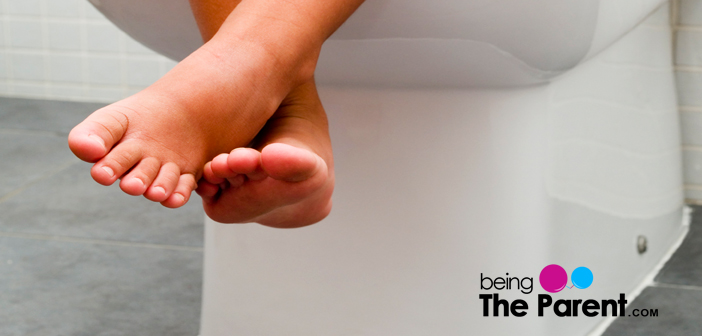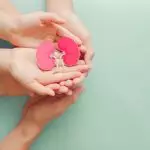
Frequent Urination In Children: Causes, Diagnosis And Treatment
5 min readWritten by Editorial Team

Are both day time and night time accidents occur quite often for your child? Does he wet the bed even after passing that ‘phase’? Does he miss a good night’s sleep as he needs to go to the toilet throughout the night? Does he find it hard to hold on the urine and is sometimes not even able to make it to the toilet which results in leaking?

If your answer is yes, never ignore the situation thinking that it is just because he is drinking plenty of water or it may be because of the cold weather. This can be a warning sign of a chronic condition (which is more often uncomfortable and embarrassing) – an overactive bladder (OAB).
What Is An Over Active Bladder (OAB)?
An overactive bladder is not a disease. OAB is a condition that is described as a sudden, uncontrollable spasm of the muscle in the wall of the urinary bladder. This ends up in a sudden and uncontrollable (urgency) need to urinate, despite the fact that the bladder is not at all filled and may just contain a little quantity of urine.
Are Overactive Bladder (OAB) And Urinary Incontinence (UI) Same?
No. Frequent urination due to an overactive bladder and urinary incontinence are not the same. But, Urinary incontinence (UI) is normally associated with an overactive bladder (OAB). Overactive bladder (OAB) is a condition in which the bladder can no more hold urine irrespective of the quantity. In the event that a person has an overactive bladder, he may regularly feel a sudden desire to urinate or can experience an accident. Whereas, urinary incontinence is a symptom rather than a condition, in which involuntary leakage of urine (accidents) occurs due to several health issues. Thus, most of the time UI goes hand in hand with OAB.
What Causes Overactive Bladder In Children?
The bladder muscles of a child undergo uncontrollable spasms which make the feeling to urinate frequently. This can happen due to several health issues that affect the urinary tract which include kidneys, ureters, bladder, and urethra.
- UTI: Urinary tract infection is the bacterial infection of the urinary tract. If the infection occurs in the bladder of the child, it may result in frequent urination. Read more about urinary tract infections in children here
- UI: Urinary incontinence is the loss of command over the bladder by the person due to various health issues. This results in frequent leaking rather than frequent urination among the children
- Pollakiuria: Pollakiuria is also known as frequent daytime urination syndrome. This is found mostly in the age group of 3 to 8 years. This is characterized by:
- Urinating four to five times per hour
- There will be no pain during urination
- Reduced fluid intake.
- There will be no UI (urinary incontinence)
- There will no UTI (Urinary tract infection)
This is relatively a harmless condition and goes away within a month without any treatment

How Is An Overactive Bladder In Children Diagnosed?
Once your child shows the symptoms, which include increased frequency of urination hindering his activities, you should consult your child’s doctor. He will:
- Ask about the history of the symptoms like did your child has constipation and so on
- Examine the child physically
- Run urine test for infections
- Conduct voiding test which includes measuring the volume of the urine, testing if anything left in the bladder after passing the urine, rate of the flow of the urine, etc.
- Ultrasound to take the image of the urinary tract especially bladder for checking anatomical abnormalities
How Can Frequent Urination In Children Be Treat?
Unless the issue is particularly serious, your pediatrician will probably recommend a non-medicinal procedure for treatment as a first solution.
- Which includes, attempting a bladder training with the child, which implies adhering to a scheduled urination routine and fighting the temptation to pee otherwise
- Likewise, take a stab at restricting certain food and beverages that can aggravate OAB
- Insisting the child to take enough time to urinate and make sure the bladder is empty
When there is some underlying medical issue that results in frequent urination of the child, medications are prescribed for treating those issues. When the underlying health issue(s) get resolved, naturally, the frequency in the urination will also come to normal. Thus:
- If the reason is constipation, a laxative is given to the child to ease the bowel thereby minimizing the pressure of the small intestine on the bladder.
- If the cause is an infection, a course of antibiotic will solve the problem
- Oxybutynin is a drug that will relax the bladder and reduces the spasms. This medicine will be prescribed by the doctor if there is no sign of constipation or infections
- Nerve stimulation is another method used to regulate bladder contractions. Though this method is more often used in adults, in children, it is used as one of the last resort
A consistent bathroom schedule and avoiding unhealthy beverages can solve the frequent urination in children to an extent.

Editorial Team,
With a rich experience in pregnancy and parenting, our team of experts create insightful, well-curated, and easy-to-read content for our to-be-parents and parents at all stages of parenting.Read more.
Responses (0)
Want curated content sharply tailored for your exact stage of parenting?
Related articles

Kidney Stones in Children – Causes, Diagnosis, and Treatment

Growing Your Family’s Wealth: Investing Tips for Parents

Altitude Sickness in Kids

Kombucha Drink For Kids – Is it Safe, Benefits and Side Effects

Top 100 Friendship and Learning Quotes For Preschoolers

10 Fun Indoor and Outdoor Relay Race Ideas For Kids
Sponsored content
Discover great local businesses around you for your kids.
Get regular updates, great recommendations and other right stuff at the right time.





